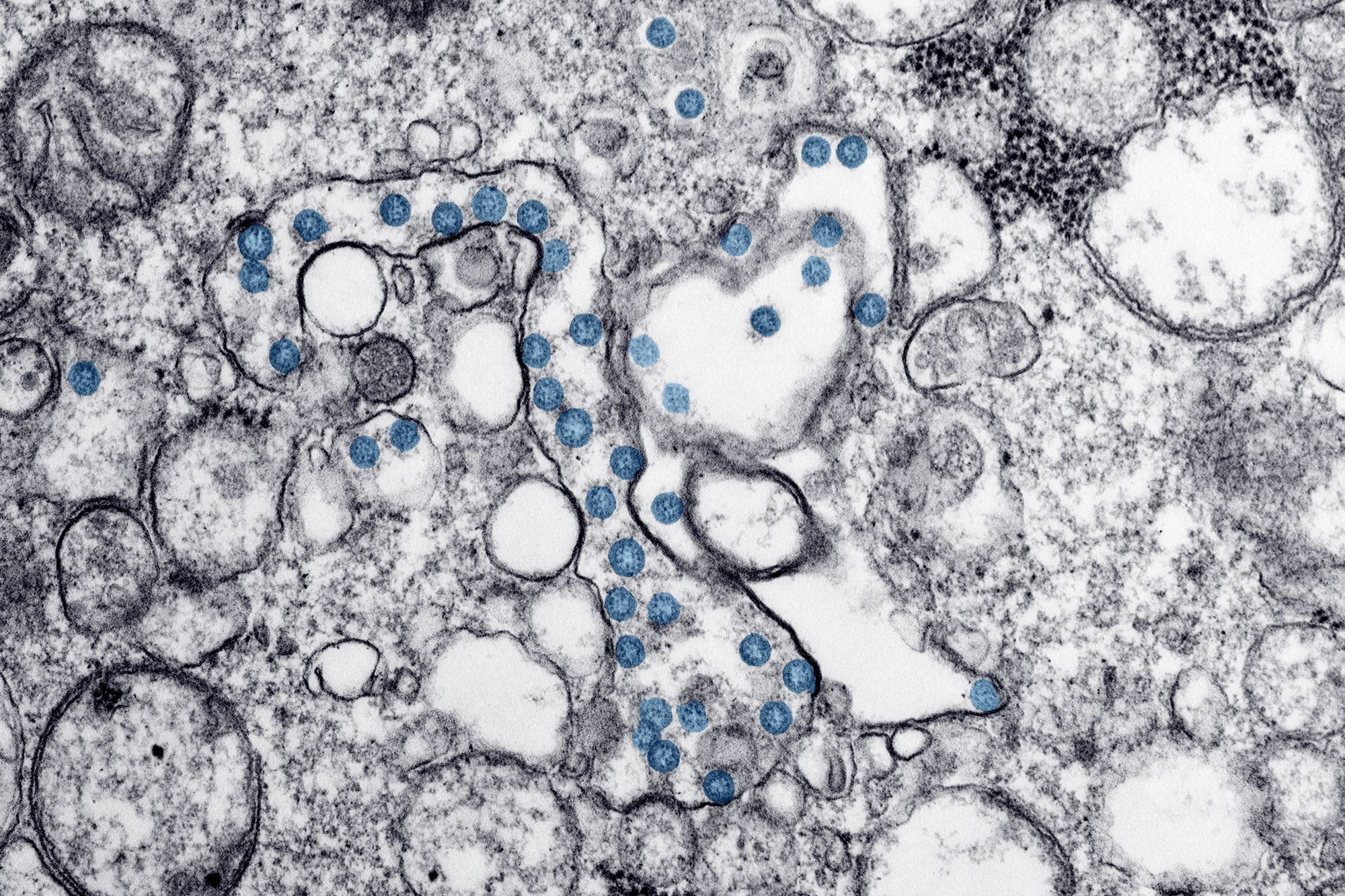It is now clear to public health experts that the novel coronavirus epidemic in Washington State and other parts of the country is accelerating. The time has come for us to work together as a community to minimize the impact in the Tri-Cities.
The bottom line is this simple:
- The spread of coronavirus can be slowed down.
- Slowing it down saves lives.
- We should commit to working hard together to do this.
Slowing the spread buys time for healthcare systems and our society as a whole to prepare, and we should lead the way as a proactive, compassionate community.
Though we haven’t seen our first confirmed case in the Tri-Cities yet, there are positive tests in surrounding counties and it now seems only a matter of time.
Because of the nature of the virus, the stakes may be quite low for many healthy individuals, but they are high as a community. As one analysis put it:
Your personal risk, if you're a young and healthy adult... is fairly low... But your risk of inadvertently catching and passing along the coronavirus to someone else, and continuing a transmission chain that eventually results in a COVID-19 death, is much higher.
Because of these stakes, it is my firm belief that our community needs to shift its mindset now and begin proactive preparations to flatten the epidemiological curve (more on this later) and mitigate the impacts of what’s likely coming.
I started as a skeptic
It took me awhile to get to this place. In my role as the Director of Cybersecurity at a large federal site it’s part of my daily routine to assess and manage risk, which may range from things like small localized phishing attempts all the way to major events that affect geopolitical stability like the recent attacks on Iran. It’s part of my job to filter through speculation and hysteria on the Internet, and my bias is consistently aimed towards working from a data-driven, fact-focused position. It is second nature for me to dispel Internet hype, rumor, hyperbole, and dis/misinformation.
Two weeks ago during a staff meeting, a colleague shared a graphic showing BIG RED SCARY CIRCLES depicting coronavirus clusters around the world. I gently chided the person for contributing to alarmism, suggesting that China’s containment measures had mostly worked and that data visualizations like the one she’d shared were psychologically dangerous because of the way they worked on the brain.
We must be prepared
However, after conversations with multiple experts and coming to understand where we actually are in terms of our readiness as a community and a country, I now believe we need to act quickly as a community. Panic serves no one, but as an Eagle Scout I was taught that “Be Prepared” are words to live by. The Tri-Cities needs to be prepared.
It’s worth taking a moment to grasp where we are before talking about solutions. Three months ago, patients in China first began experiencing coronavirus symptoms. Within weeks China had identified the new virus, which is 5x - 20x more fatal than influenza and spreads asymptomatically, and instituted unprecedented, draconian measures to contain it by aggressively quarantining 50 million people. They were successful in containing much of the spread, but their real success is seen by many epidemiologists as “buying the rest of the world time” to prepare.
Despite China’s effort, the virus is now in 100 countries and appears to have the characteristics of a true pandemic with associated exponential growth. Bill Gates and many other public health experts have indicated that we shouldn’t be surprised by this, and that our globally interconnected society is actually long overdue for another pandemic on the scale of the 1918 Spanish Flu which killed 50 million people worldwide and 675,000 in the US.
What should we be doing as a Tri-Cities community to not squander the gift of time that the Chinese response bought us?
We should be moving quickly and aggressively to mitigate spread, ready the healthcare system, ensure our local leaders are coordinating with the state to develop a uniform, systematic response, and provide financial & supportive assistance to help these efforts and impacted individuals, especially those in vulnerable populations.
Broadly speaking, we should be aiming to flatten the curve.
Flattening the curve
In an epidemic, once containment becomes impossible the strategy needs to shift to mitigation. The goal is to maximize the health care systems’ ability to serve the affected population.
By adopting protective measures such as “social distancing,” travel limitations, and excellent hygiene a community can slow the spread of the disease and spread out the consumption of healthcare resources over a longer period of time.
This saves lives both in the short and long term, by making sure more people have access to ICU beds when they need them, by giving our supply chain time to ramp up production of masks and other personal protective equipment which are in short supply, and by allowing time for a vaccine to eventually be created.
According to a February presentation at the American Hospital Association, American hospitals are preparing operationally for a 5,000,000 bed shortage nationwide due to the coronavirus pandemic.
John Droesch, MD, longtime Tri-Cities physician, confirmed that Kadlec is treating this number as a credible projection.
The Tri-Cities is a regional healthcare hub. The current situation in Lombardy, Italy, which began spreading in a suburban non-metropopolis area is illustrative of what could happen here, in our community.
On March 7, the head of the Lombardy's intensive care crisis unit reported that the health system is on the brink of collapse, with intensive care being set up in hallways. By March 26 they predict ~18,000 coronaviruses cases in Lombardy, of which ~3,000 will need intensive care.
This creates a cascading effect where critical cases of all types aren’t able to get the care they need, which impacts everyone, not just the demographics that are more at-risk from coronavirus.
We aren't testing anywhere near enough patients
Unfortunately, the US testing capacity for coronavirus is still, right now, among the worst in the world.
As of March 7, we’ve tested less than 3,000 people while other affected countries have tested many tens or even hundreds of thousands, and many symptomatic people in the US have been denied testing around the country due lack of tests and associated narrow testing protocols.
Even at the LifeCare center in Kirkland, WA where the first major outbreak occurred, they have not yet been able to test all staff members. This lag in testing is finally being addressed, but in the meantime it has contributed to artificially low numbers and a false sense of security, which has been compounded by the understandable backlash to what is being seen by some as just another overhyped media response to the scary-virus-of-the-year—H1N1 (swine flu), SARS, MERS, etc.
It now seems clear, though, that this time it really is different.
We need a greater sense of urgency
Over the last three days my wife, Pasco City Councilmember Zahra Roach, has spoken with several local elected officials and county employees about our pandemic emergency planning with respect to healthcare capacity.
The lack of urgency in these conversations make it clear that as a community, we need to start treating it as a very high likelihood that we will see a spike in coronavirus cases here in the Tri-Cities as testing capacity increases.
This is not a drill. We need to shift our mindset and start adopting measures now to protect our healthcare system and our vulnerable populations. This is going to be our reality for the next few months, and buying ourselves a couple of extra weeks of preparedness right now *will* save lives down the line.
How many?
What should we be doing in the Tri-Cities?
- First and foremost, we need to shift our mindset, with a sense of real urgency, towards a community-led, state-guided, nationally-supported response. This experience may stress our systems to the max, but it also presents an incredible opportunity for community togetherness, mutual support, and resilience.
- Encourage immediate coordination between city, county, and healthcare officials on addressing our healthcare capacity needs. This should include identifying potential facilities for large-scale triage and quarantine.
- Be ready to adopt major social distancing measures including cancellation of all large-crowd events, remote work wherever possible, limited travel etc.
- In the event of school closures, work with school districts to ensure that free and reduced lunch students still have their nutritional needs met
- Connect affected small business owners and affected workers with state relief resources.
- Lobby Dan Newhouse for passage of Patty Murray’s bill emergency sick leave funding bill.
- Schedule an appointment with Red Cross to give blood.
- Work with local Emergency Response officials to identify gaps in the existing response plan that can be filled by community volunteers.
- Establish or build on existing community and faith networks to ensure our vulnerable populations - elderly, immunocompromised, disabled, poor - are accounted for and cared for during this period. (This one is hugely important! More to come here.)
If you haven’t been following this thing closely, I understand that it’s a lot to process. A lot of the messaging around this has focused on hygiene and the fact that your individual risk is relatively low, which unfortunately has masked the systemic risk that is now materializing.
Once again, the bottom line is this: coronavirus spread can be slowed down, slowing it down saves lives, and we should commit to working hard together to do this. Slowing the spread buys time for healthcare systems and our society as a whole to prepare, and we should lead the way as a proactive, compassionate community.
This is about more than making sure you’ve got 14 days of supplies to last through an individual quarantine, it’s about coming together as a community to weather what looks to be a once-a-century challenge. But I know we can do it!
Thanks for reading. I'll be sharing more soon.
Direct Sources:
- John Droesch, MD
- Amy Person, MD, Benton Franklin County Health Dept.
- David Roach, MD, UW Harborview Medical Center ICU
- Shannon Schneider, PhD, Immunology, Leo Pharmaceuticals
- John Michael Roach, MD, Our Lady of Lourdes, Retired
Key Resources:
- Washington State Department of Health: COVID-19 page
- World Health Organization: Critical preparedness, readiness, and respons actions for COVID-19
- Center for Disease Control (CDC)'s Coronavirus page
- Harvard School of Public Health: Coronavirus Outbreak: Tracking COVID-19
- Twitter list of Coronavirus experts
Supporting News Articles:
- What's your risk of dying of COVID-19 or inadvertently allowing the death of someone in your community?
- The U.S. Isn't Ready for What's About to Happen (The Atlantic)
- You're Likely to Get the Coronavirus: Most cases are not life-threatening, which is also what makes the virus a historic challenge to contain (The Atlantic)
- Preparing for Coronavirus to Strike the U.S. (Scientific American)
- Seattle health care providers scramble to ration medical supplies as coronavirus cases climb (Seattle Times)
- Hospital: Kentucky's first coronavirus patient didn't meet state criteria for testing (Courier Journal)
- Life Care Center of Kirkland breaks silence at Saturday press conference (Bellevue Reporter)
- At Harvard forum, three who know warn of 'most daunting virus' in half a century (STAT)
- A leaked presentation reveals the document US hospitals are using to prepare for a major coronavirus outbreak. It estimates 96 million US coronovirus cases and 480,000 deaths


